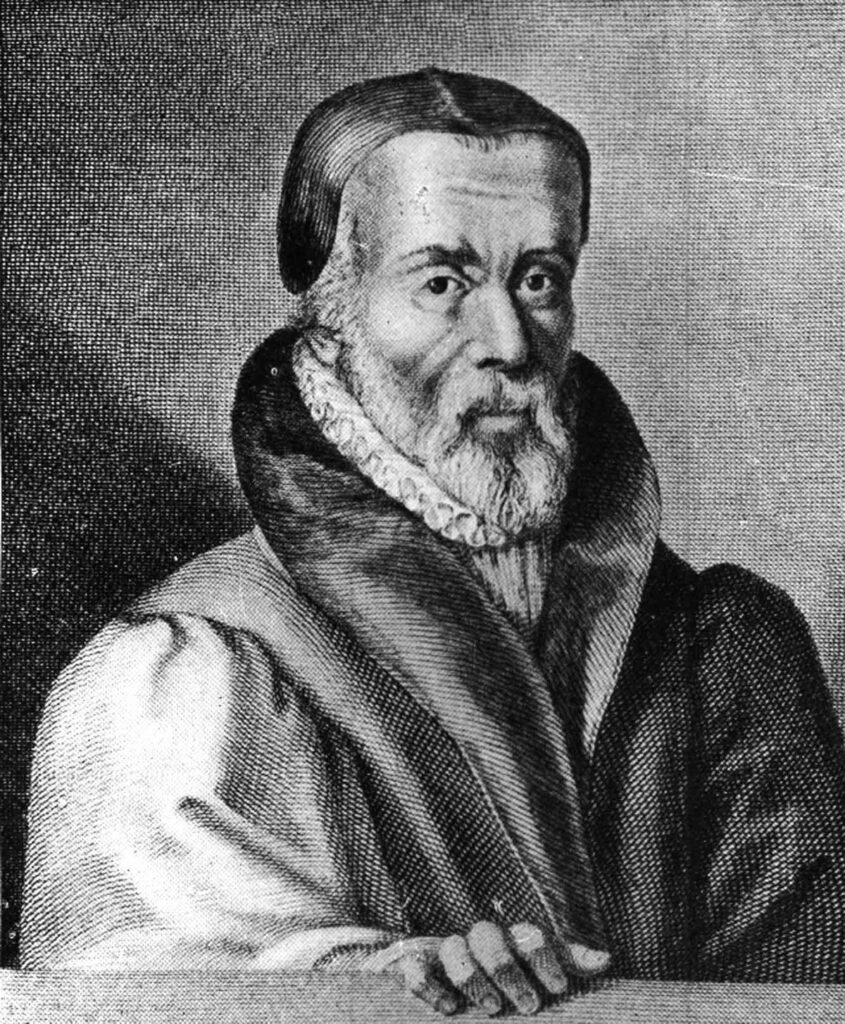The Bible Tyndale

The Tyndale Bible was the first modern English Bible. William Tyndale was an Oxford graduate priest, still a student at Cambridge when Martin Luther posted his theses in Wittenberg. In 1523, taking advantage of the invention of printing, Tyndale began translating the scriptures into current English.
For the company, Tyndale did not have any copies of the Greek and Hebrew texts “originals”. In fact, the quality of Jewish documents was poor, since the oldest manuscripts date from the 10th century. Moved, therefore, in London in the belief of finding support and encouragement, but his hopes were soon dashed. He discovered, immediately, that there was no space for a similar initiative in the bishop's palace of London for the translation of the new testament just as there was no such space in all of England. This was due to the hostility of the Church of the time that the faithful had autonomous access to the scriptures without the ecclesiastical filter.
A wealthy London merchant subsidized him with a generous gift of 10 pounds, with whom he paid for the trip to Hamburg and where he wandered off in search of the material he needed; so that, secretly, was able to complete the translation work. The media were far more developed on the continent than in England; but the opposition to this kind of work forced Tyndale to print a very limited edition of which very few copies have reached us. Tyndale, one time, he was forced to flee, managing to take only a few printed sheets with him and then complete the work at another printing house. Numerous times copies of his work were solemnly burned, and his own life was often in danger.
The Church considered Tyndale's translation heretical with the same arguments used against Wycliff's translation: the translation was not faithful to the dictates and therefore introduced anticlerical terms and heretical opinions. Thomas More accused Tyndale of evil intent as it corrupted and changed the meaning of the Scriptures. In particular, accused Tyndale of translating the Greek terms Priests, ekklesia, agape with elder, 'Elderly’ (instead of the then common one priest, priest); congregation, 'congregation’ (instead of Church, Church); love, 'love', (instead of charity, charity). The Catholic Church also condemned Wycliffe and Tyndale for introducing notes and comments into their work, promoting, in this way antagonism and heretical doctrines (per Tyndale, Lutheranism).
The first Tyndale Bible was published in Cologne in 1526. The final revision of the Tyndale was published in 1534. In 1535 Tyndale was arrested in Brussels, and the following year he was sentenced to death on charges of spreading Lutheranism. He was tied to a pole, strangled and his body was burned at the stake.
Tyndale is today considered the father of the official Anglican bible, la King James Version (KJV), since much of his work has been deemed valid and therefore preserved. The reviewers of the 1881 they declared that while the KJV was the fruit of many hands, the bases were built by Tyndale, and that that version that appeared later was essentially a re-proposition of Tyndale.